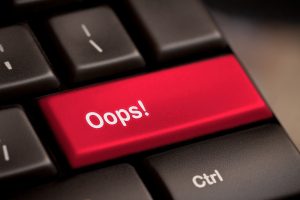 Elon Musk has done a lot of gross and terrible things, but taking a wrecking ball to Law Twitter is up there among the worst. In the halcyon days of 2021, we complained about Nazis and trolls and blithely demanded an edit button. Little did we know the mountain of spam that was coming to bury us! And so let us enjoy what may well be our last hurrah of pure, gleeful, timewasting snark.
Elon Musk has done a lot of gross and terrible things, but taking a wrecking ball to Law Twitter is up there among the worst. In the halcyon days of 2021, we complained about Nazis and trolls and blithely demanded an edit button. Little did we know the mountain of spam that was coming to bury us! And so let us enjoy what may well be our last hurrah of pure, gleeful, timewasting snark.
I mean, of course, the lawyers who are clearly barreling toward career ruin after using ChatGPT in some fashion to cite fake opinions in support of their client’s tort claim against Avianca airlines. The case was very clearly time barred under the prevailing international statute, the Montreal Convention. Nonetheless, attorney Peter LoDuca of Levidow, Levidow & Oberman PC (described in case documents as an “associate,” although he was barred in 1985), submitted an Affirmation in Opposition of the defendant’s motion to dismiss citing several cases, including an 11th Circuit decision, saying that Avianca’s bankruptcy tolled the statute of limitation.
Condon & Forsyth LLP, which represents Avianca, specializes in aviation law. They took one look at the affirmation and fired off a reply brief noting that the cases cited by the plaintiffs did not exist.
“Although Plaintiff ostensibly cites to a variety of cases in opposition to this motion, the undersigned has been unable to locate most of the case law cited in Plaintiff’s Affirmation in Opposition, and the few cases which the undersigned has been able to locate do not stand for the propositions for which they are cited,” they wrote. “For these reasons, Avianca respectfully submits that the Verified Complaint should be dismissed as untimely.”
On April 11, Judge Kevin Castel signed the first of three, increasingly irate show cause orders instructing LoDuca to attach copies of the non-existent cases. After requesting and receiving an extra week for “vacation,” LoDuca filed an affidavit purporting to attach the cases as exhibits, including the purported 11th Circuit decision by Judges Jordan, Rosenbaum, and Higginbotham in Varghese v. China Southern Airlines. Judges Adalberto Jordan and Robin Rosenbaum do in fact sit on the 11th Circuit. But Judge Patrick Higginbotham, originally nominated to the federal bench by Gerald Ford, took senior status from the 5th Circuit in 2006.
As defense counsel pointed out the next day in a very polite letter to the court, none of the cases attached in the affidavit actually exist. This led to the second show cause order in which Judge Castel demanded to know why he shouldn’t sanction LoDuca for making up cases and ordered him to get himself down to court for an in-person hearing on June 9.
At which point another attorney named Steven Schwartz filed an affidavit saying that he’d produced all the work by consulting ChatGPT, but since he’s not federally barred, he let LoDuca put his name on it. Schwartz conceded that it was the “fault of the affiant in not confirming the sources provided by Chat GPT of the legal sources it provided,” but that he had “no intent to deceive this Court nor the defendant,” and that he “greatly regrets having utilized generative artificial intelligence to supplement the legal research performed herein and will never do so in the future without absolute verification of its authenticity.”
If Schwartz was hoping the court would just let bygones be bygones, he was sadly mistaken. Instead the court responded with a third show cause order adding the instruction that the attorneys should be prepared to explain how they came to file a “false and fraudulent notarization in the affidavit filed on April 25, 2023.”
Schwartz and LoDuca have each hired counsel and requested an extension of time to file a response and a continuation of the hearing. Judge Castel gave them two extra business days for their written answers, but said under no circumstances would he be budging off the Thursday hearing.
His memo endorsement of LoDuca’s letter motion was especially ominous:
Mr. LoDuca is differently situated from Mr. Schwartz and the firm. He has availed himself of a full and fair opportunity to respond to the Court’s OSC regarding non-existent caselaw and three (3) possible grounds for sanctions. He is not entitled to a do-over.
The only point of response to the supplemental OSC of May 26 is whether he, in fact, appeared before Mr. Schwartz, a Notary Public, on April 25, 2023 and took an oath to tell the truth. That should be a simple and straightforward matter. But if he needs until June 6, 2023 to respond on this point, he may have the time.
Well, it’s not great. Unless you’re toasting your marshmallows on the dying embers of Law Twitter, in which case, it’s goddamn delightful.
Mata v. Avianca [Docket via Court Listener]
Liz Dye lives in Baltimore where she writes about law and politics and appears on the Opening Arguments podcast.




